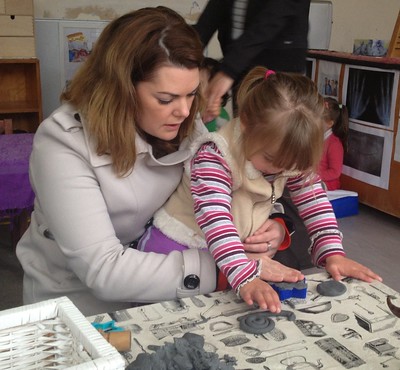If you ask people what today is, most of them will say “Monday.” While that’s true, it’s also “A Day without Child Care” Day across the United States. Organizers expect the day to serve as an informational protest, and a way to ask legislators around the country to address the burgeoning childcare crisis.
A 2020 study of US childcare showed a deficit of about 30% between the childcare slots needed and those available. It’s gotten worse. More than 16,000 licensed care facilities closed permanently during the pandemic. A recent study indicated that 5 out of 6 parents of infants and toddlers said that finding quality, affordable day care services in their neighborhoods was a problem. In Texas, nearly 60% of counties in that state qualify as “childcare deserts.”
To complicate matters, fewer than 10% of care providers are even accredited. Providers must have a license to operate, but there is no requirement for accreditation. However, parents seek out accredited centers as a signal of quality care.
Last month, Michigan rolled out Tri-Share, an employer-based childcare model first piloted in Grand Rapids in 2021. Tri-Share is the result of efforts by the Michigan Women’s Commission, which sought input from women in the workforce in 2019 and early 2020. It’s important to note that the Women’s Commission identified the availability of childcare as a major barrier to stable employment for young families. In fact, among other concerns like pay equity, paid family leaves, and high-wage employment, accessible and affordable childcare was the number one desire of working families.
On-site care centers are not a possibility for most employers, given issues like cost and liability. Employers who had previously offered childcare services to their employees often closed their on-site facilities as a result.
Part of the childcare solution, or part of the childcare problem?
That doesn’t mean that employers no longer want to help solve the daycare crisis, though. In the Tri-Share program, which is a public-private partnership, Tri-Share recruits participating employers, locates licensed childcare providers, and collects subsidy payments from employers, employees, and the State of Michigan. Tri-Share then forwards the payments to care providers.
Providing subsidized childcare for employees makes sense. Employers have found that many of their female employees leave the workforce when the challenges of finding reliable childcare become too great. Initial data collected during the pilot show that the Tri-Share program increased employee retention by 80%.
The program still has limits, however. They include a lack of licensed care providers and voluntary employer participation. The State also has a checkered history with childcare subsidy payments for other programs.
The lack of accessible, affordable childcare in the State of Michigan underscores the critical impact of WCC’s decision to permanently close the Children’s Center on campus. The program could have fulfilled a lot of childcare needs for parents in Washtenaw County.
If the Children’s Center wasn’t making money, WCC could have expanded the program to provide care to the public at market rates. WCC sells access to the Health and Fitness Center to the public as a money-making venture with no problems. Is there a reason the same model could not have been applied to the Children’s Center? That would have cured the Administration’s complaint that the Children’s Center was losing money. At the same time, it would have helped to address the licensed childcare shortage in Washtenaw County.
So, regardless of how you acknowledge “A Day Without Child Care” understand that WCC could have been part of the solution. Instead, it became part of the problem.
Photo Credit: Green MPs , via Flickr






















